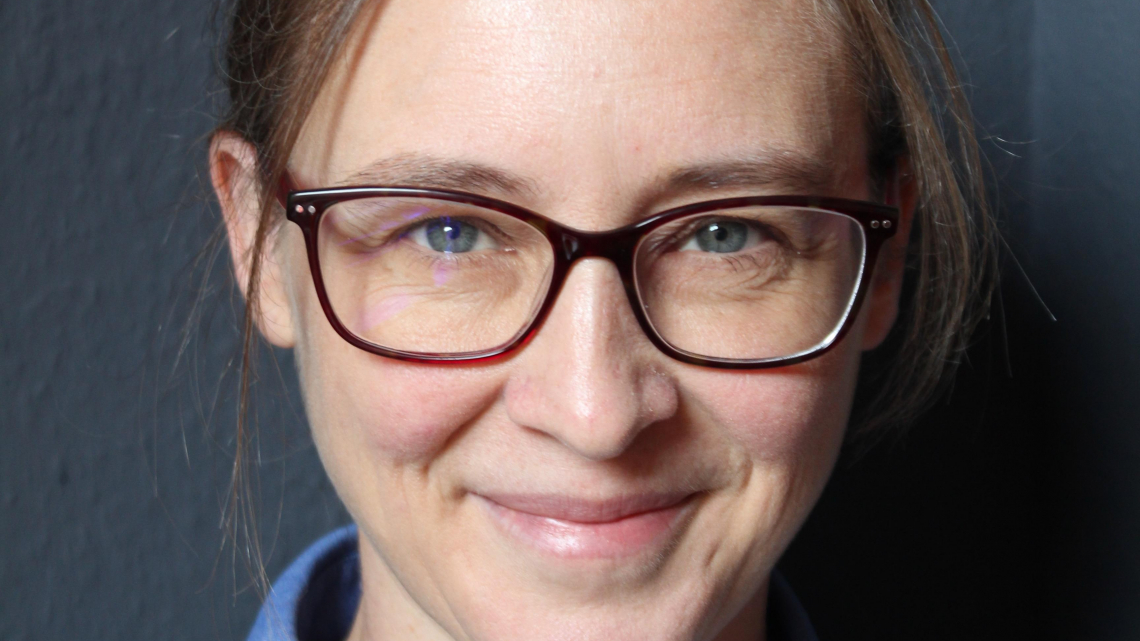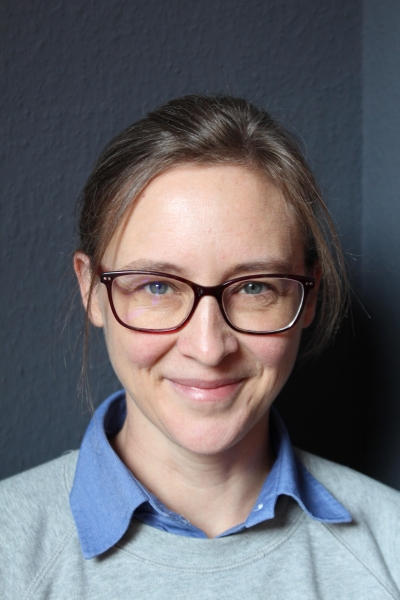
Q&A with New Professor Dr. Sarah Pourciau

We are excited to announce that Dr. Sarah Pourciau joins the faculty at Duke in Spring 2020! Coming to us from the Leibniz-Zentrum für Literatur- und Kulturforschung Berlin, where she worked on the book project “The Broken Medium. An Austrian Modernist Theory of the Event,” Dr. Pourciau has previously held positions at the Technische Universität Berlin, Princeton University, and Stanford University. Her first book, The Writing of Spirit: Soul, System, and the Roots of Language Science (Fordham, 2017), tells a story spanning two centuries and five countries, from Jakob Grimm to Roman Jakobson, about how language became a scientific object, and about the consequences of this development for theories of poetry, system, the psyche, and time.
Is there anything which you are especially looking forward to doing at Duke?
Yes, teaching! I’ve held research positions for the past few years now, which has meant relatively little interaction with students, so I’m extremely excited to get back into the classroom. There is a form of communal thinking that can only happen in a seminar context, and I have missed that dynamic very much.
Do you watch any German series? Do you have a favorite German band or composer?
I am currently waiting not-so-patiently for the return of Babylon Berlin. I also watch the occasional Tatort (I used to be more devoted, I feel like it’s gotten less creative over the last few years). Music-wise: I’m a classically trained musician (piano) and I work on the history of opera, so the great German composers are very much a part of my everyday life, but I’d be hard-pressed to pick a favorite. I wish I were cool enough to have a favorite German band, but I am not.
Share a favorite memory with us from your time in graduate school!
My favorite memory from grad school is meeting my husband, but I’m guessing that’s not the kind of memory you mean. My favorite academic memory from grad school is my first year of seminar work, when I encountered huge swaths of the German literary and philosophical tradition at one fell swoop. I didn’t major in German in college, so almost everything was new to me (I had never even heard of Novalis!), and it was an amazing experience to have my mind blown wide open every time I sat down to read.
Do you have any advice for current graduate students about the academic life?
On the one hand, it’s a glorious thing to get paid to read and think and write. On the other hand, academia can be brutal. Don’t be afraid to ask for help or solicit advice as often as necessary, from as many people as necessary. And don’t shy away from criticism. Even when it’s wrong, it will still make you better.
How did you get into studying German?
I tossed a coin! It was October of my sophomore year in college. I had been planning to major in philosophy or English, but I wasn’t enjoying the prerequisite classes in either department, so I figured I would switch to Comparative Literature, where I was enjoying my coursework. The only problem was that I didn’t have any languages beyond my rudimentary high school Spanish. I knew I needed to learn another one, fast, and I knew I was interested in philosophy, but I was undecided between French and German. Heads was French, tails was German; it came up tails, and the following Monday I joined a beginner German class. Now I have two children with German passports.
Favorite German word:
I do a lot of philosophy, so of course I have a philosopher’s soft spot for all the big, untranslatable German concept words, like Aufhebung, Dasein, Bildung, and Geist. But I also really like Nervensäge. I use it not infrequently on the aforementioned children.
